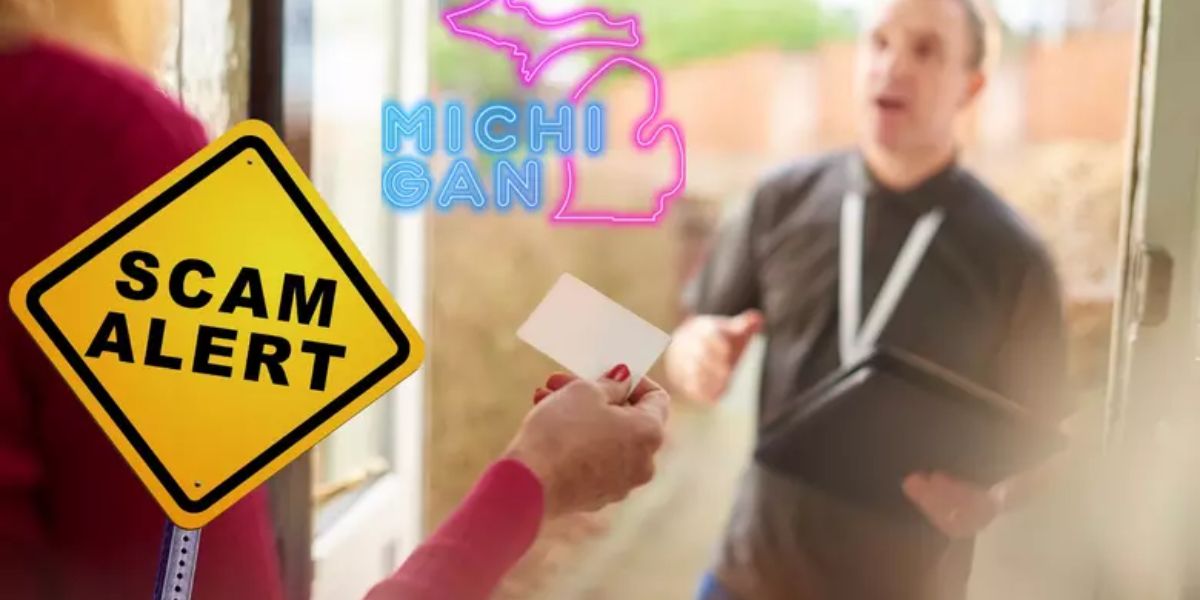Michigan residents are facing a wave of new scams designed to steal money, personal information, or both. While scammers constantly evolve their tactics, law enforcement and consumer protection agencies have flagged several troubling schemes currently circulating in the state. Whether you live in Detroit, Grand Rapids, Lansing, or a small rural town, you need to stay informed to protect yourself, your family, and your finances.
Here are five of the latest scams targeting Michiganders — and how you can avoid falling victim.
1. Utility Disconnection Scam
One of the most common scams currently hitting Michigan households involves fake threats to shut off utilities. In this scam, you receive a phone call or email from someone claiming to be from DTE Energy, Consumers Energy, or a local water department. The message often says you have an overdue bill and that your electricity, gas, or water will be shut off within the next hour if you don’t pay immediately.
The scammer may demand payment via prepaid debit card, gift card, or a mobile app — all red flags.
How to protect yourself:
Remember, utility companies never demand immediate payment over the phone or through unconventional methods like gift cards. If you’re unsure, hang up and call the number listed on your utility bill or the company’s official website. Never provide payment details to someone who contacts you unexpectedly.
2. Michigan Secretary of State Fake Texts
Michiganders are also being hit with fake text messages pretending to come from the Michigan Secretary of State. These messages claim there’s an issue with your driver’s license or vehicle registration and that you must click a link to “fix” it.
The link takes you to a phishing website designed to steal your personal information, including your driver’s license number, Social Security number, and banking details.
How to protect yourself:
The Michigan Secretary of State does not send texts with clickable links requesting sensitive personal details. If you receive such a message, do not click the link. Visit the official Secretary of State website directly or call their office if you have concerns about your account.
3. Grandparent or Family Emergency Scam
This heartbreaking scam is specifically designed to prey on older Michiganders. Scammers call pretending to be a grandchild, niece, nephew, or other young family member, claiming they’re in trouble — maybe they’ve been arrested in another state or country, or they’ve been hospitalized and need help paying a bill.
Often, the scammer begs the victim not to tell anyone else in the family and requests an urgent wire transfer or prepaid card payment.
How to protect yourself:
If you get a call like this, pause and verify. Contact other family members to check if the story is true. Scammers count on emotional panic, so taking a moment to investigate can stop the scam cold. Never send money without confirming details.
4. Fake Online Marketplace Sellers
Online marketplaces like Facebook Marketplace, Craigslist, and OfferUp are filled with legitimate buyers and sellers — but they’re also crawling with scammers. One popular Michigan scam right now involves fake sellers advertising popular items like used cars, boats, concert tickets, or electronics at prices that seem too good to be true.
The scammer asks for a deposit or full payment upfront, often promising to “ship” the item or hold it for you. Once you pay, they disappear.
How to protect yourself:
Always meet in person when making large purchases from local sellers, and never send deposits or full payments before seeing the item. Arrange meetings in safe, public locations such as police station parking lots. If the price feels suspiciously low, it’s probably a scam.
5. Medicare and Health Insurance Scams
With health insurance open enrollment periods and constant healthcare news, scammers are taking advantage by pretending to be Medicare representatives or insurance agents. They may call, email, or even show up at your door, claiming they need to “update your records,” “verify your Social Security number,” or offer you a new free health plan.
Sometimes, scammers try to trick you into providing your Medicare number or bank account details, which they then use to commit medical identity theft or drain your bank account.
How to protect yourself:
Remember, Medicare will never call or visit you uninvited to ask for personal or banking details. If you receive an unsolicited Medicare-related call or visit, hang up or decline politely. To report suspected Medicare fraud, contact 1-800-MEDICARE.
Final Tips
Michigan Attorney General Dana Nessel has repeatedly warned residents to stay vigilant as scammers become increasingly sophisticated. Here are a few general tips to help you protect yourself:
Never give out personal or financial information to someone who contacts you unexpectedly.
Don’t be pressured into immediate action — legitimate companies will always give you time to verify.
Use official contact channels when in doubt. Look up phone numbers and websites yourself.
Report scams to the Michigan Attorney General’s Consumer Protection Division or the Federal Trade Commission.
By staying informed and cautious, you can help protect not only yourself but also your friends, family, and neighbors. Share these scam warnings widely — because awareness is one of the best defenses against fraud.







Leave a Comment